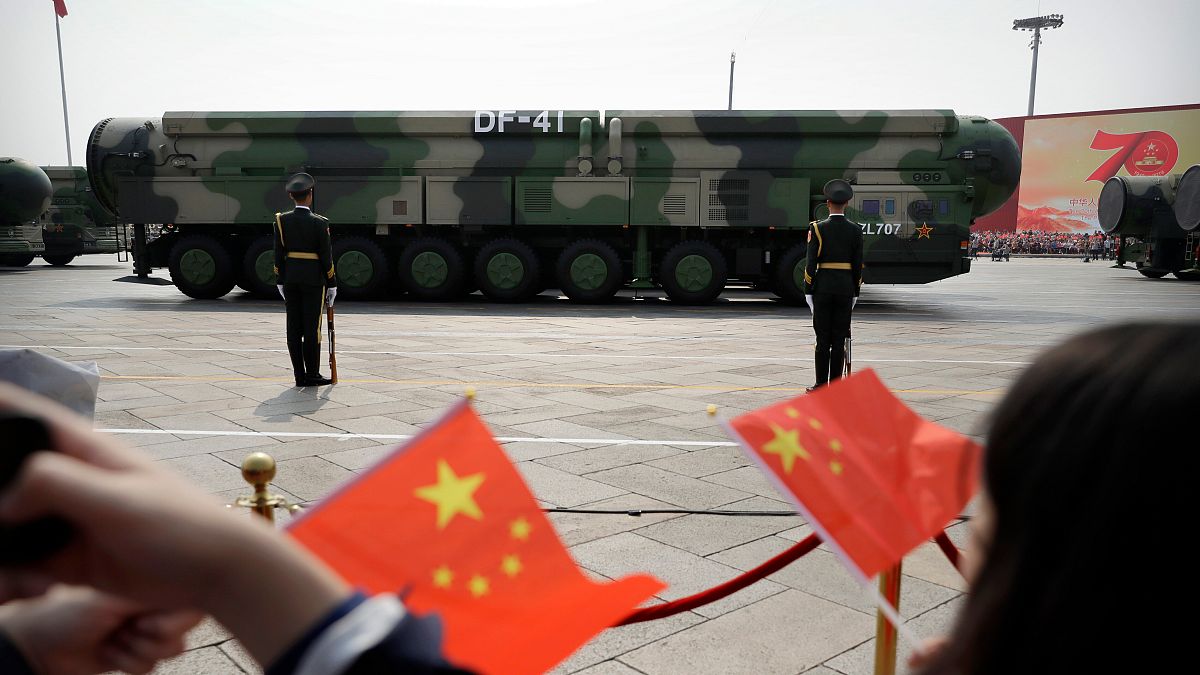France will oppose the Mercosur treaty right until the end
Paris risks an embarrassing defeat this week, just as its government faces possible censure and collapse. But this won't be the end of the saga.
Mujtaba Rahman is the head of Eurasia Group’s Europe practice. He tweets at @Mij_Europe.
French opposition to the EU-South America trade deal has never been more broad-based or determined.
The draft treaty is detested by French farmers and environmental activists alike. It has been rejected by President Emmanuel Macron and opposed by his Prime Minister Michel Barnier. And all of the country’s political parties — from the hard left to the far right — are against it.
In theory, there’s much in the Mercosur treaty that should please the French. And yet, the deal has been framed as an assault on the country’s fragile beef industry, an environmental disaster for the Amazon forests, as well as a sacrifice of French rural interests to German car manufacturers.
The question is what’s really at play?
In reality, French automobile manufacturers, luxury industries, financial services and even some farmers would gain from the abolition of import tariffs of up to 35 percent by Argentina, Bolivia, Brazil, Paraguay and Uruguay. Over 400 European protected origin labels would also be enforced for the first time, potentially boosting sales of many French wines, cheeses and Bayonne ham.
Europe would be granted more favorable access to South American sources of scarce materials such as lithium, copper and cobalt too, which are needed for the transition to electric vehicles and other adjustments for climate change.
And more broadly, signing of the EU’s biggest ever free-trade deal and creating a largely tariff-free market of almost 800 million people, would provide new markets for Europe at a time when U.S. President-elect Donald Trump is threatening a 10 percent tariff on EU goods.
In essence, the treaty is actually an important step toward Macron’s ambition to create a “strategic Europe” that’s capable of promoting its own global interests against the U.S. and China. But few of these arguments hold sway on the French, and when they’re made, they’re drowned out.
Instead, the country’s farmers have been demonstrating, sometimes violently, against a treaty that has crystallized their long-standing anger with European rules on food, environmental safety and animal welfare. They object, in particular, to the abolition or reduction of tariffs on 160,000 metric tons of Mercosur beef, which they say is produced by methods banned in the EU, such as the use of artificial growth hormones.
Brussels, for its part, notes that the treaty specifically excludes hormone-enhanced beef, and that the annual beef quota for Mercosur is a small fraction of the EU market and less than Europe currently imports. However, both French farmers and the French government believe there are insufficient guarantees that Mercosur farmers will respect the bloc’s import rules, and they’re demanding “mirror clauses” that would effectively impose European standards on all South American meat production — a non-starter for the Latin Americans.
Crucially, though, the political significance of this dispute has now snowballed, as French media and opposition parties have presented the possibility of the Commission ignoring French objections and other EU members outvoting the country as a sign of Paris’ waning influence.
Back in September, Commission President Ursula von der Leyen’s insistence on the removal of France’s then Commissioner Thierry Breton was already seen as a slight against the EU’s second biggest member. And now, the country’s failing campaign against the Mercosur deal is being viewed by national media as a partial consequence of France’s failure to meet its commitments to reduce its budget deficit, adding to the unfolding domestic crisis.

Meanwhile, other European governments — especially Germany — have been exasperated by France’s position, and fail to understand why one of the world’s biggest food exporters would allow policy to be dictated by a minority of its farmers.
And while Macron and Barnier have attempted to wield a kind of moral-historical “veto,” saying they “cannot imagine” the Commission going ahead with such a controversial treaty against the wishes of a large founding member, the word from Brussels is that the Commission hopes to do exactly that before the Mercosur summit this week.
Indeed, negotiating and signing trade treaties falls within the Commission’s competence, but any deal has to be ratified by a qualified majority of member countries representing 65 percent of the EU’s population. It would be unusual for Brussels to sign a trade deal it feared wouldn’t be ratified, so urged on by Germany and Spain, it appears the Commission believes France doesn’t have enough allies to block the treaty.
Even though Poland, Italy, Austria, the Netherlands and Ireland have all expressed reservations regarding the treaty, the calculation in Brussels is that Paris is still short of support to prevent the deal from going ahead.
France thus risks an embarrassing defeat this week, just as its government faces possible censure and collapse. But this won’t be the end of the saga. Whatever new French government emerges in 2025 — if any — will continue to pursue the Mercosur battle to the final gasp of its ratification.
What's Your Reaction?

















































